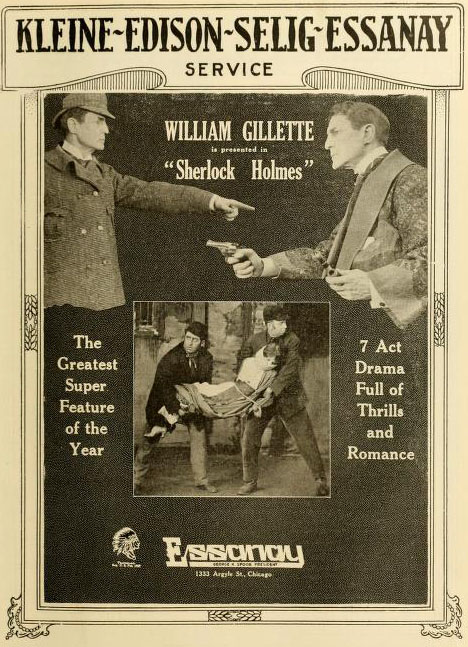Pages
▼
Monday, November 2, 2015
Sherlock Holmes (Arthur Berthelet, 1916)
It's easy to see why William Gillette was such a success on stage as Sherlock Holmes: He has the calm centeredness that the best Sherlocks possess. I'm thinking of Basil Rathbone and Jeremy Brett here; even though I like Benedict Cumberbatch and Jonny Lee Miller in their versions, the contemporary setting makes them more active and volatile, not to say eccentric, than the traditional Victorian Holmeses. But Conan Doyle's character was not, I think, a good fit for silent film: I missed the detective's ingenious deductions that provide so much of the wit in Conan Doyle's tales and don't fit neatly onto title cards. The plot, cobbled together from several stories, is also both needlessly complex and tiresomely chopped up into discrete "acts." Apparently the surviving version of the film is a conversion of the American original into a French four-part serial. Gillette and Edward Fielding as Dr. Watson (here limited for the most part to the fourth segment) seem to have an awareness that less is more when it comes to film acting, but most of the company is made up of scenery-chewers, particularly Mario Majeroni and Grace Reals as the villainous Larrabees. Ernest Maupain isn't a terribly convincing Emperor of Crime as Moriarty, considering that his chief function is to bluster about bumping off Holmes, in which he is repeatedly thwarted, and his henchmen (one of whom is reportedly the later-to-be-famous character actor Edward Arnold) do a lot of ludicrous skulking and crouching. Still, it's a valuable record of Gillette's famous role and really not an unwatchable movie.
Charles Matthews
